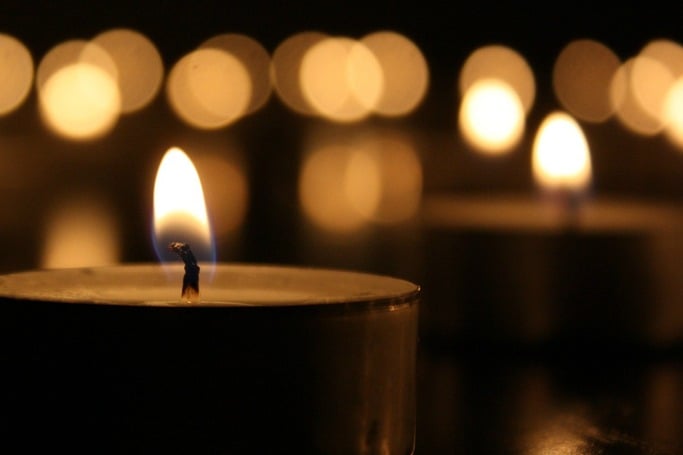This post was originally delivered as a homily at Vespers on Wednesday, April 13, 2016. We are grateful for the author’s permission to publish it here.
Scripture readings:
Psalm 126, Psalm 127, Colossians 1:12–20, Hebrews 7:24–27
As usual, it is in the Psalms, today, that the Word of God seems to draw near to our Easter experience here at Notre Dame. I am speaking, of course, of the lines, “In vain is your earlier rising, your going later to rest, for your email box will fill up with new tasks while you slumber” (Ps 127).
It is hard to maintain Easter in April at college. There are simply so many things to do! In fact, I’m supposed to be in two different places on campus right now. But the Psalm’s gifts, the ones the Lord pours on his beloved while we slumber, remind me of one of my favorite parables. The farmer plants the seed and sleeps night and day, and the grain grows up—without him watering or weeding, in fact without him ever noticing. It is characteristic of God’s work that we go out full of tears, and know nothing of the hidden work of the Holy Spirit until the time of fulfillment, when we suddenly find ourselves full of song, carrying sheaves from the harvest (Ps 126).
Sometimes we lose perspective, and we think our task lists are the work of the Kingdom. This is especially tempting for those of us who work, in one way or another, for the Church. But it is Christ, and not our beloved acronymed institutions, who is the image of the invisible God, the first-born of all creatures, the creating Word at the beginning, and the first-born from the dead (Col 1). Through the name of Jesus Christ alone can the Kingdom be brought into being, and in the end our good works only take their place within his great work, which is already accomplished in the Resurrection.
The author of Hebrews is especially emphatic about this in the passage prescribed for this evening. The good news is that our high priest has accomplished once for all that sacrifice of reconciliation which we could not do alone, and he continues to reconcile us throughout time. The “once for all” (Greek ephapax) once needlessly became a stumbling block between Christians. But from our perspective today, it reminds us that our work, even if it is done for the Church, can only bring about the Kingdom when it is taken up into Christ’s one great work by the grace of the Holy Spirit.
In the next few weeks of incessant noise and trouble, let us try to hold in the back of our minds, waking and sleeping, the image of the risen Lord in the heavenly temple, showing the wounds of his mercy, and ever making peace through the blood of his Cross. For Christ is the risen grain, the unexpected harvest given to weeping sowers, the gift showered on the covenant people whether we slumber or are busy about many things.
Our tasks will remain, but in this way even the smallest and most urgent can become a mystery: a way of entering in hope into the gates of the kingdom that the Lord has opened for us.



